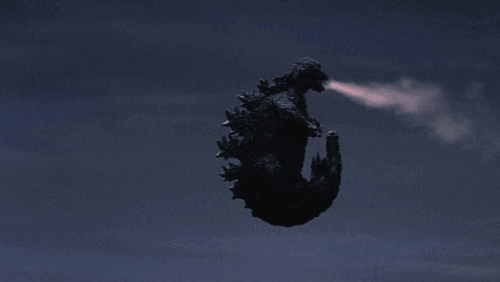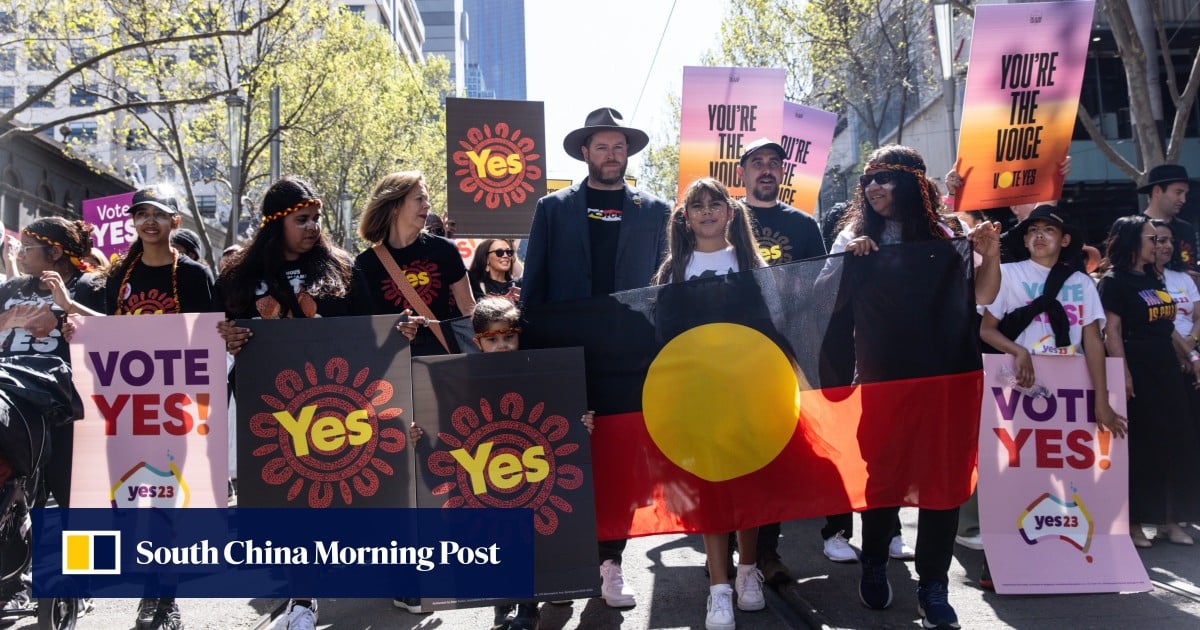-About 20,000 people in Brisbane attended a rally in support of the ‘Voice to Parliament’ proposal, with similar events also held across other Australian cities
-The proposal, which aims to enshrine indigenous people in Australia’s constitution, appears on track for defeat, according to a recent poll
Thousands rallied in Australia on Sunday to support recognising the country’s indigenous people in the constitution, a proposal that is struggling ahead of a referendum next month.
If approved on October 14, the measure would enshrine indigenous people in the constitution and set up an advisory body to give Aboriginal and Torres Strait Islander people input on policies that affect them.
Indigenous Australians, who account for 3.8 per cent of the population, face disadvantages including discrimination, poor health and education outcomes and high incarceration rates.
But the “Voice to Parliament” proposal appeared on track for defeat, a poll showed last week, the fifth monthly survey in a row to find voters against the change.
Yes23, the group behind “Walk for Yes” events, said around 20,000 people attended in Brisbane, Australia’s third-biggest city.
In Melbourne, more than 10,000 supporters marched through the streets, some with banners reading: “You’re the voice, vote yes”. Thousands more gathered in Canberra, Perth, Brisbane, Darwin, Hobart and Alice Springs.
Many attendees wore T-shirts and held placards emblazoned “Vote Yes!”, Australian Broadcasting Corp (ABC) footage showed.
“I think we need a voice in parliament and I think it’s about time,” said Laurel Johnson, a 58-year-old retired indigenous community services worker who joined hundreds of people at the Sydney rally, many seeking shade during a spring heatwave.
Cameron Lum, a 34-year-old supporter of the Voice proposal, said he joined the Sydney rally to support “long overdue change in this country”.
“I think it opens doors to massive policy change led by first nations people,” he said.
To change the constitution, the referendum, backed by Prime Minister Anthony Albanese’s Labor government, would require a national majority in favour and majorities in at least four of Australia’s six states.
Most indigenous people favour the referendum, but some, like prominent No campaigner Warren Mundine, say it is a distraction from achieving practical and positive outcomes and would not fully resolve the issues affecting them.
“If we can do just three things – accountability, jobs and education – then we’ll resolve most of the problems we’ve got,” Mundine told ABC.
To pass, the referendum needs majority support across Australia, but also a majority in at least four of the six states.
Voting is compulsory, with non-voters who do not have a valid reason liable to a fine of A$20 (US$13).
Voters will be asked: “A Proposed Law: to alter the Constitution to recognise the First Peoples of Australia by establishing an Aboriginal and Torres Strait Islander Voice. Do you approve this proposed alteration?”.
Since Australian independence in 1901, only eight of 44 proposals for constitutional change have been approved.



I never heard this side before, thank you for sharing, comrade. It’s given me something of a wake up call to my own stupid liberalism.
All good, I think a lot of people are under the impression that if you’re progressive, you must vote yes. There’s been no funding for the progressive “No” campaign compared to the progressive “Yes”.
I’m still fence sitting personally, and will either abstain or vote No. Because there is still significant support from Aboriginal people for the voice. It’s really divisive in their communities. The stat that 80% of Aboriginal people support the voice is a lie with a massive selective bias (300 people surveyed in one of the states with the least Aboriginal people).
IMO it’s self-explanatory that a 97% settler colony is getting to vote on the rights of the Indigenous 3%. We don’t even have a grassroots democratic voice already, so there is no real way of actually gauging support from Aboriginal communities. The closest thing to a democratic Australia wide Aboriginal body is Black People’s Union, which are against the voice. If the government wanted to do this right they would have built the democratic institution first, and then followed the advice of it. Currently they’re just assuming most Aboriginal people want this constitutional change without even having a democratic voice to begin with to advocate for it.
Try to balance idealism with realism my friend, that’s my advice anyway. Strive for the perfect, but don’t refuse the good